Real J6 - Part Six - Death At Sunset - Senate Blackberrys Lead To Another Senate Death?
The Former Senate Sergeant Of Arms Dies Suddenly Of Turbo Cancer Before Key January 6th Testimony
An encrypted Senate Blackberry belonging to a four-decade advisor to Joe Biden found in May 2017 connects to yet another death on Capitol Hill - this time the Senate Sergeant at Arms with Turbo Cancer.
Journalist George Webb was told a network of encrypted Blackberrys in the Senate Sergeant of Arms was being used for covert actions like Libya, Syria, and Ukraine in May 2017, and the bodies have been stacking up ever since.
Detailed Summary of the Article
In May 2017, independent journalist George Webb received an encrypted U.S. State Department BlackBerry that had been dropped into his hands by a long-time, four-decade Biden advisor. Webb learned this device was part of a broader secret network of specially configured BlackBerrys, routed through the U.S. Senate Sergeant-at-Arms office, to coordinate covert actions in Libya, Syria, and Ukraine. That same network allegedly implicated key Democratic figures and foreign oligarchs.
Webb’s sources traced these devices back to Mansfield-style decision-making channels in Congress. Among those channels, Senator Michael Stenger’s office stood out: he served as Senate Sergeant-at-Arms during the January 6 breach and was reportedly scheduled to testify about missing Senate laptops tied to these encrypted networks before dying unexpectedly of what Webb calls “Turbo Cancer.”
Webb argues that this encrypted BlackBerry network facilitated everything from Beau Biden’s NATO peacekeeping communications in Kosovo and Serbia to clandestine weapons-for-profit deals involving Ukrainian oligarch Igor Kolomoisky. Kolomoisky’s steel plant in Kramatorsk, Ukraine, is alleged to house a “dark weapons” cache originating from earlier regime-change operations—inventory once hidden to fund the Clinton Foundation.
Eric Braverman, then-CEO of the Clinton Foundation, vanished in late 2016 while probing these international transactions; Webb contends Braverman fled to Israel after meeting Kolomoisky, exposing a web of money laundering that links all the way back to the 2011 Libyan overthrow.
As Webb recounts in his books Blackberrys Matter and Awan Minutes to Midnight, Dmitri Alperovich (founder of the cybersecurity firm CrowdStrike) supposedly configured these secure BlackBerrys to mask Clinton Foundation arms deals, first flagged during the contested 2016 DNC “hack.”
Webb’s narrative foregrounds John Podesta and Huma Abedin as Clinton insiders who used this parallel BlackBerry grid to funnel Libyan-derived funds into Hillary Clinton’s 2016 campaign. According to Webb, Wikileaks-released Podesta emails first hinted at suspicious communications; tracking Alperovich’s handiwork helped Webb prove that Clinton Foundation staff were coordinating covert military interventions—profiting from regime-change.
Meanwhile, the rise of the Azov Battalion—funded in part by Kolomoisky—became a geopolitical flashpoint: President Vladimir Putin eventually cited Azov as justification for Russia’s 2022 invasion, allegedly to seize Kolomoisky’s weapons stockpile. Through on-the-ground travel and digital intercepts, Webb claims to have connected every “specially configured” BlackBerry back to these interwoven strands of foreign financing, illicit arms, and high-level U.S. political corruption.
Persons and Organizations
George Webb
George Webb is an independent investigative journalist and author who specializes in uncovering hidden links between U.S. political elites, covert weapons programs, and foreign intelligence. He traces a network of encrypted State Department BlackBerrys from a Biden adviser’s hand to Senate liaisons responsible for Libya, Syria, and Ukraine operations. Through a series of self-published books (including Blackberries Matter and Awan Minutes to Midnight), Webb argues that these devices reveal a clandestine pipeline of money laundering and arms trafficking that began long before January 6.
Michael Stenger
Michael Stenger served as U.S. Senate Sergeant-at-Arms during the January 6, 2021 Capitol breach and was a former U.S. Secret Service agent. Webb contends that Stenger’s office managed six laptops stolen on January 6, which were linked to the encrypted BlackBerry network coordinating covert actions. Stenger’s abrupt death from “Turbo Cancer” shortly before he was to testify about those missing devices raises, in Webb’s view, the specter of a cover-up designed to silence him.
Igor Kolomoisky
Igor Kolomoisky is a Ukrainian oligarch and former governor of Dnipropetrovsk, widely accused of funding nationalist paramilitary groups such as the Azov Battalion. Webb asserts that Kolomoisky’s industry holdings in Kramatorsk function as secret warehouses for “dark weapons” stockpiled since the 2011 Libyan campaign. By following encrypted BlackBerry trails, Webb claims to have linked Kolomoisky’s arms network to high-level Clinton Foundation operatives and covert U.S. State Department actions.
Beau Biden
Beau Biden, the late son of President Joe Biden, served as Delaware’s Attorney General before volunteering for NATO peacekeeping in Kosovo and Serbia. Webb posits that Beau’s encrypted BlackBerry communications surfaced during his NATO deployment, marking the earliest nodes of the State Department’s secret Blackberry fleet. These initial signals, Webb argues, helped establish a template for U.S. advisors channeling regime-change directives into a secure network that would later underpin Ukraine arms dealings.
Eric Braverman
Eric Braverman was the CEO of the Clinton Foundation until his sudden disappearance in late 2016, shortly before the presidential election. Webb alleges that Braverman fled to Israel—first to Tel Aviv, then a nearby kibbutz run by Mark Zuckerberg’s brother—after a meeting with Kolomoisky that exposed Clinton Foundation money laundering involving dark weapons. Braverman’s vanishing act, Webb suggests, underscores how close the Foundation came to toppling the façade of financial and geopolitical misdeeds.
Dmitri Alperovich
Dmitri Alperovich is the co-founder of the cybersecurity firm CrowdStrike, but Webb first knew him as the hacker-team lead at Network Associates around 2000. Webb alleges that Alperovich configured and distributed specially encrypted U.S. State Department BlackBerrys to high-ranking Clinton Foundation and congressional contacts to coordinate Libya and Ukraine regime-change funding. In Webb’s narrative, Alperovich’s tools effectively laundered war profits by masking official directives behind standard diplomatic channels.
John Podesta
John Podesta served as White House Chief of Staff under President Bill Clinton and as Hillary Clinton’s 2016 campaign chairman. Webb claims that Podesta, working alongside Clinton insiders, utilized encrypted State Department BlackBerrys to orchestrate covert interventions in Libya and Ukraine—funneled through the Clinton Foundation. Podesta’s leaked emails, released by Wikileaks, are cited by Webb as early breadcrumbs pointing to a sophisticated digital communication network designed to evade oversight.
Huma Abedin
Huma Abedin was a top aide to Hillary Clinton during her tenure as U.S. Secretary of State and campaign chair. Webb contends that Abedin was a primary node in the encrypted BlackBerry network, facilitating secure messaging about arms shipments, political favors, and Clinton Foundation solicitations. Her close proximity to State Department operations, Webb argues, made her indispensable in coordinating funds flows between Libyan oil-for-arms programs, Ukrainian covert actions, and Clinton’s political ambitions.
Hillary Clinton
Hillary Clinton served as U.S. Secretary of State from 2009 to 2013 and was the Democratic nominee for President in 2016. Webb alleges that she leveraged specially configured State Department BlackBerrys to hide emails and clandestine transactions tied to regime-change campaigns in Libya and Ukraine. According to Webb, Clinton used the Clinton Foundation as a laundering instrument for oil revenues and arms profits, ultimately injecting those gains into her 2016 campaign coffers.
Clinton Foundation
The Clinton Foundation is a global nonprofit charity co-founded by former President Bill Clinton and then led by CEO Eric Braverman during the 2016 election cycle. Webb portrays the Foundation as a front for laundering proceeds from regime-change operations, particularly those in Libya (2011) and Ukraine (2014 onward). He contends that key staffers used encrypted BlackBerrys to route funds and coordinate arms shipments under the guise of humanitarian or diplomatic work.
Azov Battalion
The Azov Battalion is a controversial Ukrainian nationalist paramilitary unit formed in 2014 to combat separatist forces in eastern Ukraine. Webb claims that Kolomoisky funded Azov and that its arsenal includes “dark weapons” originally purchased or diverted during the Libyan conflict. Russia’s stated rationale for invading Ukraine in 2022—targeting Azov’s weapon stockpiles—fits Webb’s thesis that a transnational arms network persisted for years, ultimately endangering the entire region.
U.S. State Department
The U.S. State Department is the federal agency responsible for international diplomacy and foreign policy. Webb alleges that a clandestine subdivision within the Department configured and distributed encrypted BlackBerrys to select insiders (including Biden advisers and Clinton Foundation operatives) to manage covert interventions in Libya, Syria, and Ukraine. This rogue apparatus, Webb argues, bypassed standard diplomatic channels, effectively enabling a parallel intelligence operation.
U.S. Senate Sergeant-at-Arms
The U.S. Senate Sergeant-at-Arms office oversees security, communications, and technology for the Senate chambers. Webb reports that encrypted BlackBerry traffic routed through this office facilitated secret dealings between congressional leaders and foreign actors. Michael Stenger—who led this office during January 6—was set to testify about missing Senate laptops tied to the network before dying unexpectedly, which Webb interprets as evidence of a deliberate cover-up.
NATO
NATO (North Atlantic Treaty Organization) is a military alliance of 30 North American and European countries formed in 1949 to provide collective defense. Webb highlights Beau Biden’s NATO peacekeeping service in Kosovo and Serbia as the origin point for State Department BlackBerrys, suggesting the encrypted communications infrastructure was tested during those late-2010 deployments. According to Webb, NATO-related BlackBerry traffic laid the groundwork for subsequent clandestine messaging in Libya and Ukraine.
Network Associates
Network Associates (later renamed McAfee, Inc.) was a cybersecurity and antivirus firm known for developing PGP encryption software and other security tools. Webb recounts acquiring Dmitri Alperovich’s hacker team at Network Associates in 2000 to port PGP encryption to new platforms. He argues that experience later enabled Alperovich to create “hardened” BlackBerrys used by Clinton and Biden circles for secretive global operations.
DNC (Democratic National Committee)
The DNC is the formal governing body of the U.S. Democratic Party, responsible for coordinating election strategy and fundraising. Webb contends that the notorious 2016 “DNC hack” was a cover story for stealing or masking data on specially configured BlackBerrys—devices that already facilitated clandestine arms and finance deals. By claiming the hack was fraudulent, Webb suggests operatives diverted attention from the deeper conspiracy involving Clinton-authorized mail rerouting and data exfiltration.
Facebook/Meta (Implied by Mark Zuckerberg’s brother)
Facebook—now Meta Platforms, Inc.—is a social media and technology conglomerate founded by Mark Zuckerberg. Webb mentions that Eric Braverman was hidden on a kibbutz operated by Zuckerberg’s brother in Israel, implying that Facebook/Meta connections provided protected refuge for disgraced insiders. Although not a direct conspirator, Facebook’s extended family network illustrates how global tech resources sometimes shield individuals tied to political intrigue.
“Specially Configured” BlackBerry Network
This informal designation refers to a fleet of encrypted BlackBerry smartphones provisioned by U.S. State Department cryptographers for select government and Clinton Foundation insiders. Webb argues that these devices formed the backbone of a covert messaging grid used to coordinate weapons shipments, political favors, and money laundering. Their discovery—first by Beau Biden’s handlers in Kosovo—sparked Webb’s multi-year investigation into how these phones shaped global conflicts and U.S. electoral outcomes.
🔍 Summary of the Article
In May 2017, George Webb received an encrypted U.S. State Department BlackBerry allegedly tied to a decades-long Biden advisor, revealing covert communications involving Senate decision-making on Libya, Syria, and Ukraine.
These encrypted devices are purportedly linked to the Senate Sergeant-at-Arms office, with Michael Stenger’s sudden death from “Turbo Cancer” raising suspicions about cover-ups related to January 6, 2021.
Webb argues that the same network of BlackBerrys connects key Democrats, covert weapons programs, and Ukrainian oligarch Igor Kolomoisky, with ties tracing back to conflicts in Kosovo and Serbia involving Beau Biden.
This narrative ties into a broader pattern of Clinton Foundation corruption, dark weapons laundering, and the mysterious disappearance of figures like Eric Braverman, underlining how Webb’s early reporting has resurfaced in ongoing geopolitical events.
Stenger called out “professional agitators” at J6, namely the Orange Hats and 4th Psych Ops.
👤 Key Individuals and Their Descriptions
George Webb
George Webb is an independent journalist and author known for investigating U.S. intelligence operations, the Clinton Foundation, and covert military programs. He often connects biomedical, geopolitical, and intelligence themes through on-the-ground research and whistleblower sources. His work includes several banned Amazon bestsellers like Blackberries Matter and At One They Strzok, which allege government corruption and secret networks. Webb’s reporting blends real intelligence elements with controversial claims that challenge official narratives.
Michael Stenger
Michael Stenger was the U.S. Senate Sergeant-at-Arms during the January 6th Capitol breach and a former U.S. Secret Service agent. He was reportedly a key witness in investigations related to missing Senate laptops tied to covert communications. Webb suggests that Stenger's death from “Turbo Cancer” just before testimony may have been orchestrated to silence him. His office is alleged to have managed encrypted BlackBerrys used in covert action planning.
Igor Kolomoisky
Igor Kolomoisky is a Ukrainian oligarch and former governor of Dnipropetrovsk with strong ties to the Azov Battalion and alleged covert arms operations. He has been accused of funding paramilitary units and manipulating Ukrainian politics through his media empire. Webb links Kolomoisky to U.S. State Department BlackBerrys and claims his steel plant in Kramatorsk may store weapons used in Libyan and Ukrainian conflicts. Kolomoisky is also reported to have met Clinton Foundation insiders, including Eric Braverman.
Beau Biden
Beau Biden, son of President Joe Biden, served in Kosovo as part of NATO peacekeeping operations and was Delaware’s Attorney General. Webb suggests that encrypted BlackBerry communications linked to covert State Department programs began during Beau’s tenure in Kosovo and Serbia. He is portrayed as an early participant or witness to the BlackBerry network used in NATO-driven regime change. This aspect ties Beau to a broader family narrative in Webb's reporting on Ukraine and dark weapons trades.
Eric Braverman
Eric Braverman is the former CEO of the Clinton Foundation who reportedly went missing in late 2016 amid Clinton Foundation investigations. George Webb alleges that Braverman fled to Israel and was hidden in a kibbutz connected to Mark Zuckerberg’s brother. According to Webb, Braverman may have met with Kolomoisky, linking the Clinton Foundation directly to Ukrainian arms trafficking and money laundering. His disappearance is framed as pivotal in uncovering hidden global networks.
Dmitri Alperovich
Dmitri Alperovich is the co-founder of CrowdStrike, the firm that investigated the alleged DNC hack in 2016. Webb claims Alperovich configured encrypted U.S. State Department BlackBerrys used in covert operations tied to Libya and Ukraine. He is portrayed as a cybersecurity expert who once worked with Network Associates and may have authored or ported malware tools for intelligence use. Webb’s book Blackberries Matter centers on Alperovich’s alleged role in laundering war profits and manipulating cybersecurity narratives.
John Podesta
John Podesta, former White House Chief of Staff and Hillary Clinton’s 2016 campaign chairman, is implicated by Webb in the use of encrypted BlackBerrys for coordinating covert foreign interventions. Webb suggests Podesta’s involvement in Libya and Ukraine may have extended to using Clinton Foundation infrastructure for laundering war profits. Podesta’s emails, leaked in 2016, have fueled many theories about political corruption. He is considered by Webb a central actor in merging campaign finance with covert military operations.
Huma Abedin
Huma Abedin, a longtime aide to Hillary Clinton, is accused by Webb of participating in the encrypted BlackBerry network alongside Podesta and Clinton. She allegedly facilitated communications related to arms trafficking and the Libya intervention. Abedin’s close access to State Department operations has long made her a focus of investigative journalism. Webb portrays her as a key gatekeeper for the Clinton Foundation’s darker dealings.
Hillary Clinton
Hillary Clinton is accused by Webb of orchestrating covert military actions in Libya and Ukraine to fund her 2016 presidential campaign through the Clinton Foundation. Webb connects her use of specially configured State Department BlackBerrys to the broader geopolitical operations involving Alperovich and Kolomoisky. Her email scandal and alleged money laundering are central themes in several of Webb’s books. Clinton is presented as a figure whose pursuit of power relied on secret digital infrastructure and shadowy allies.
🏢 Organizations and Entities
Clinton Foundation
The Clinton Foundation is portrayed by Webb as a vehicle for laundering profits from regime changes in Libya and Ukraine. Allegedly, it employed encrypted BlackBerry networks and staff like Braverman to coordinate logistics and finance. The foundation is depicted as deeply intertwined with the 2016 election, cyber operations, and foreign arms trafficking. Its role in orchestrating covert actions remains one of Webb’s most persistent investigative themes.
Azov Battalion
The Azov Battalion is a controversial paramilitary unit in Ukraine known for ultranationalist ties. Webb alleges that Kolomoisky funded the group and that it has stockpiled “dark weapons” from earlier regime-change operations. Putin’s public rationale for invading Ukraine—targeting Azov—is seen by Webb as validation of earlier reporting. Azov is a central node in the narrative linking the Bidens, the Clintons, and Kolomoisky.
U.S. State Department
The State Department is implicated in configuring secure BlackBerrys used to coordinate covert operations in conflict zones like Libya, Syria, and Ukraine. Webb asserts that these devices were given to select officials and advisors to bypass official communication channels. The agency is accused of operating a parallel intelligence infrastructure. Its role is central to the idea of “specially configured” networks for war profiteering.
U.S. Senate Sergeant-at-Arms
This office manages technology and security for the U.S. Senate and is central to Webb’s claims of covert communication systems. Webb reports that six laptops were stolen from this office on January 6th and ties these devices to encrypted networks. Michael Stenger, who led the office during the Capitol breach, is now deceased—sparking further speculation. The office is alleged to have been instrumental in laundering and storing incriminating data.
I wrote about about six Senate laptops stolen from the US Senate Sergeant of Arms office after the events I witnessed on January 6th.
Now a key witness to the fact, Michael Stegner, the Senate Sergeant of Arms, appears to have been murdered with Turbo Cancer on his way to January 6th testimony.
Journalist George Webb wrote a book about the removal of the Senate and House “Ukraine laptops” on January 6th, 2021 called “At One They Strzok”.
I had the good fortune of having a long-time Biden adviser drop one of the US State Department Blackberrys configured for the US Senate in my lap in May of 2017.
In a potential scheme to implicate the Bidens only in dark weapons dealing in Ukraine, the actual perpetrators may have given away key incriminating evidence about themselves.
These Blackberrys connect to the Senate Sergeant of Arms laptops I was told.
One thing is for sure - the “specially configured” US State Department Blackberrys keep leading us to a Ukrainian Billionaire named Igor Kolomoisky. We seemed to be finding one Kolomoisky skeleton in the closet after another.
These “special” US State Department Blackberrys traced all the way back to Beau Biden in Kosovo and Serbian NATO conflicts, and I just made a trek through all these countries tracing the Blackberrys’ early history with the Bidens.
NowI had hard evidence these encrypted Blackberrys connected to the US Congress deciding on covert action in Libya, Syria, and Ukraine through an encrypted Blackberry network.
Key Democrats in Congress appeared to be selling access to covert operations through an encrypted Blackberry network.
From the very beginning in September 2016, I was on a hunt for US State Department Blackberrys used by Hillary Clinton and her executives John Podesta and Huma Abedin at the Clinton Foundation for Libya topple gains being used to fund Hillary Clinton’s 2016 Presidential Campaign. All suspicions at the very start, beginning with the seemingly fraudulent DNC ‘hack”, focused on one Dmitri Alperovich.
I knew Dmitri as the CEO of a hacking team we bought at Network Associates in 2000 to write viruses and port the PGP encryption software to various platforms. From the outset, I knew proving the case against the Clinton Foundation for money laundering would require finding the US State Department Blackberrys that Dmitri configured. I wrote a book later about my chase to find the Dmitri Alperovich US State Department Blackberry trove called “Blackberries Matter” which again was an Amazon bestseller and then also quickly banned.
Journalist George Webb wrote a book about the search for Dmitri Alperovich’s US State Department Blackberry trove called “Blackberries Matter” which quickly became a best seller and then was almost immediately banned.
The part I find amazing about all the early work I did on the Clinton Foundation and the “specially configured” US State Department Blackberrys is how they still lead directly to the biggest stories in Ukraine - Kolomoisky and Dmitri Alperovich’s Ukraine.
Putin has publicly stated his invasion is about rounding up Kolomoisky’s Azov Batallion, and many believe Kolomoisky’s dark weapons used since 2014 in various Azov overthrows around the world are still stockpiled somewhere in Ukraine.
The situation in Ukraine hasn’t played itself out yet with Kolomoisky, the Azov Battalion, and Putin’s search for the Azov Battalion's dark weapons, but we are tantalizing close. Putin is closing in on Kolomoisky’s steel plant in Kramatorsk, Ukraine, the suspected storehouse of Kolomosky’s dark weapons stash dating back to Libya.
Almost six years ago, I began a video series with the first title - “Where is Eric Braverman”, referring to the missing CEO of the Clinton Foundation, Eric Braverman, who had gone missing right before the 2016 Presidential Election.
George Webb’s best-selling book about the Clinton Foundation’s laundering of Libya's overthrow profits was called “Awan Minutes to Midnight”. It was quickly banned on Amazon after selling over 3,000 copies in a few months’ time.
I also had connected Kolomoisky through the DNC with Clinton Foundation President Eric Braverman. Along the way in my reporting about the CEO of the Clinton Foundation, I was given very credible information Braverman was safe in Israel, having been given safe passage to Tel Aviv, and then been secreted away to a nearby kibbutz run by Facebook/Meta CEO Mark Zuckerberg’s brother. It turned out the Braverman had indeed met with Igor Kolomoisky of Ukrainian Azon Battalion fame in Tel Aviv before being secreted out of the public view.
Journalist George Webb extensively detailed the evidence against the Clinton Foundation’s laundering of dark weapons profits obtained from the overthrow of the Libyan Government in 2011.
One thing is for sure now though -Michael Stenger is dead. And the Senate Sergeant of Arm’s secrets may have died with him.









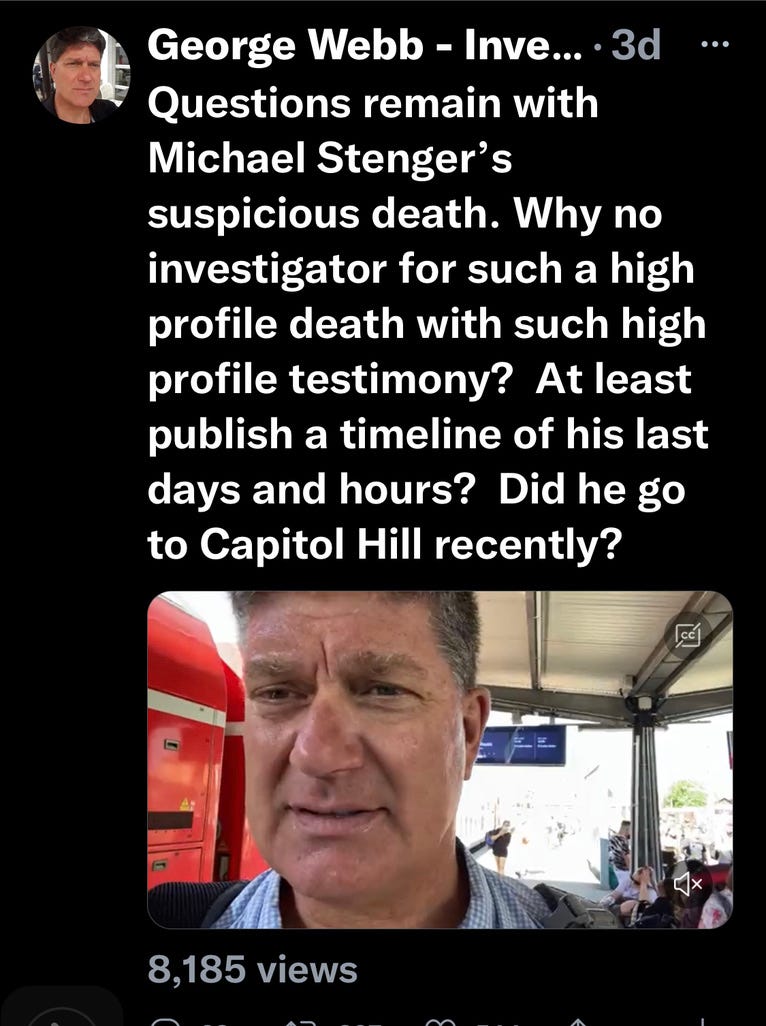
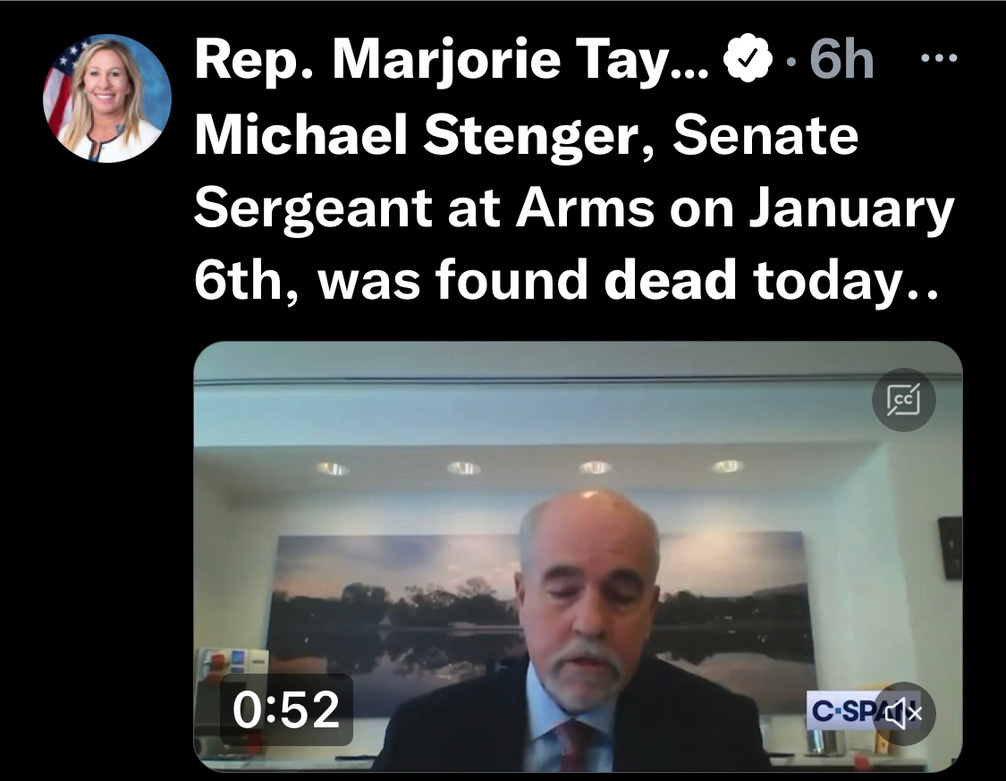


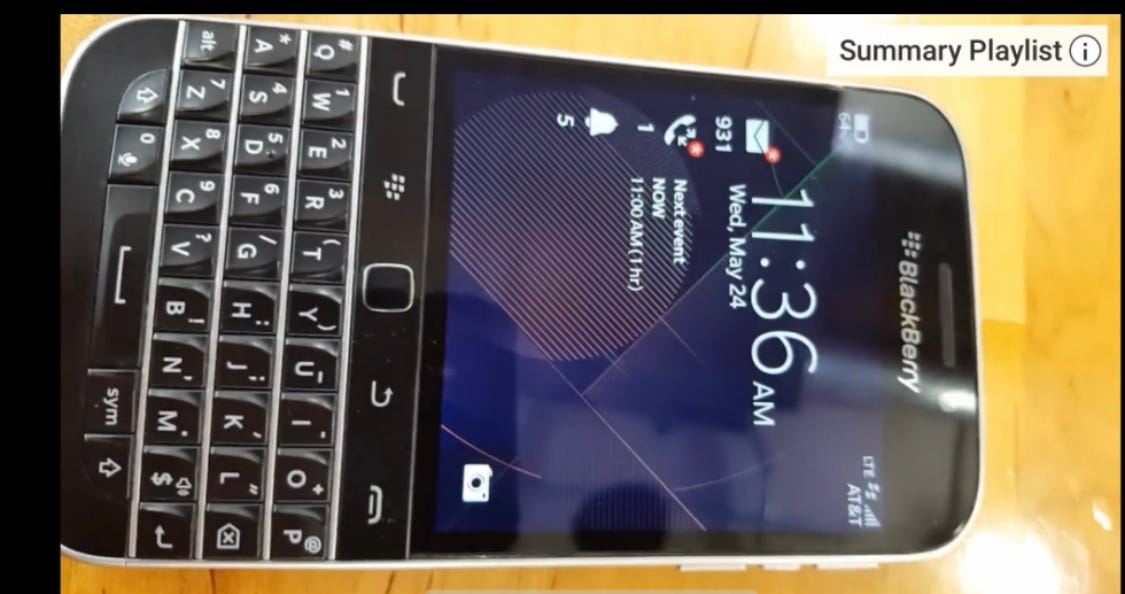




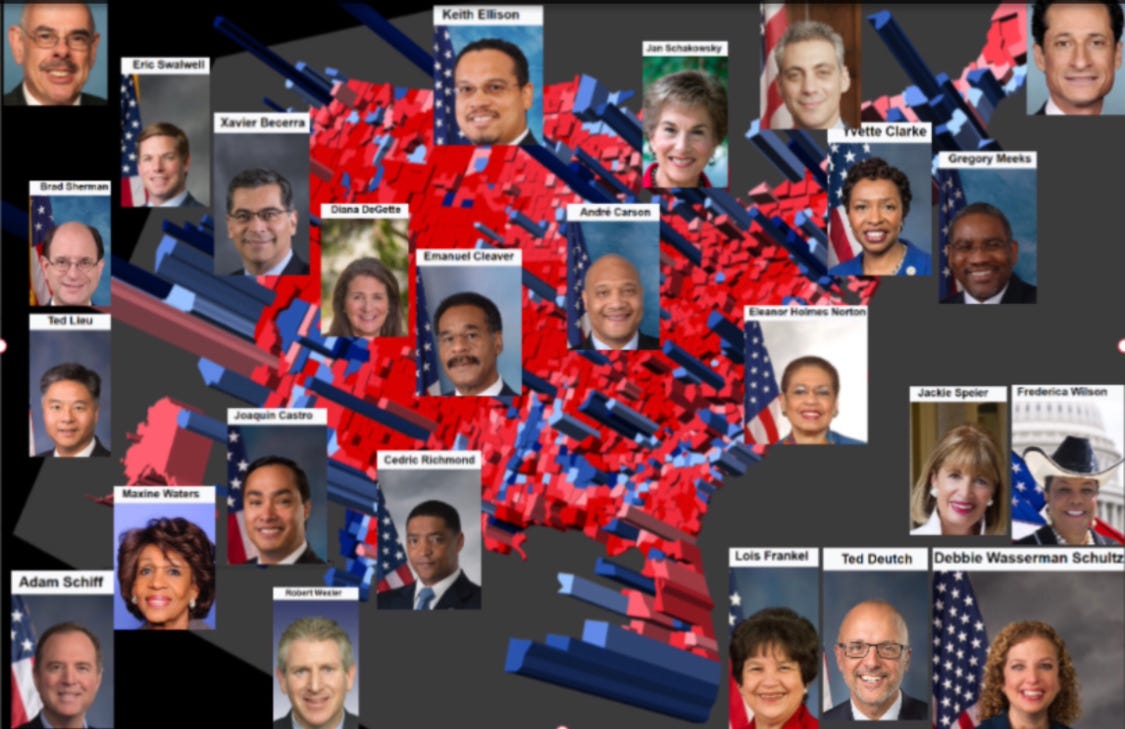






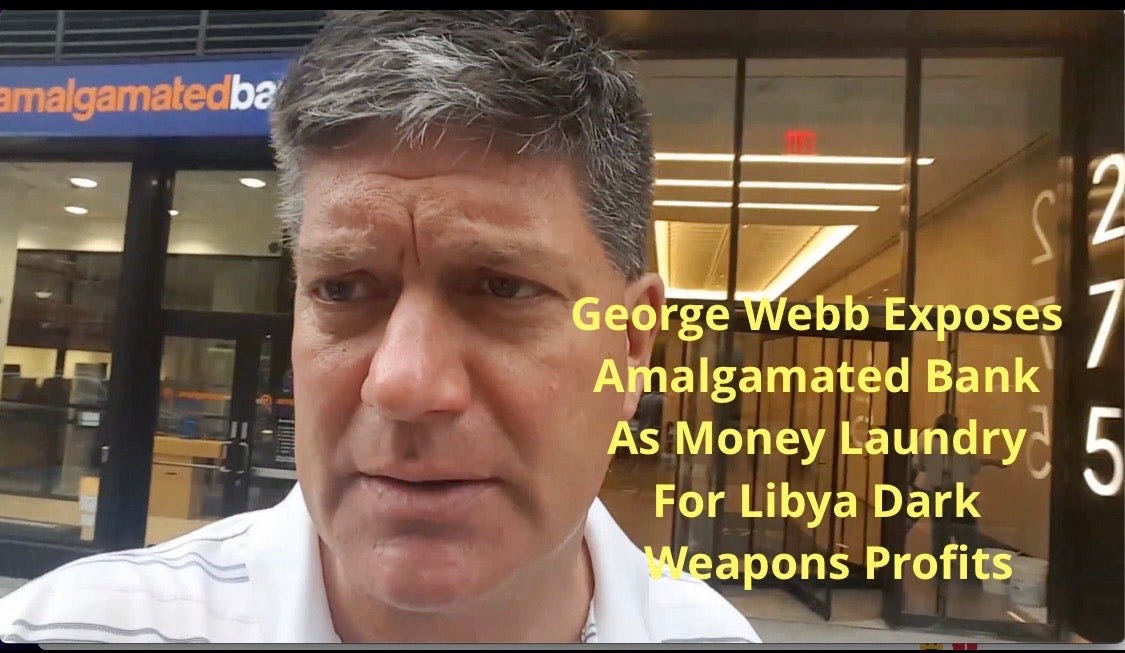
Fishrot Files - Part 1
12 November, 2019
Today WikiLeaks publishes over 30,000 documents (the first of two batches) it has obtained from a whistleblower within SAMHERJI, a multinational fishing company based in Iceland. They expose corrupt schemes by the company in Namibia to gain access to rich fishing grounds off the African country’s shores.
The documents are dated from 2010 to 2016, the period during which the company gained its foothold in Namibia. SAMHERJI has now become the biggest single recipient of fishing quotas in the country. The documents (which include e-mails, internal reports, spreadsheets, presentations and photos) expose how the company spent millions of dollars in pay-offs to senior Namibian officials and politicians in order to ensure growing and continued access to the country's resources.
It also exposes that lofty promises by SAMHERJI, to build infrastructure in the country and create jobs, were never fulfilled. On the contrary, the company used its international corporate structure to transfer proceeds from the operations straight out of the country. This was done through intermediaries it controls in Cyprus and in the tax-haven of Mauritius.
Today’s released files also demonstrate how these same tools were used to transfer funds to a secret account, set up by SAMHERJI in Dubai, for the sole purpose of transferring kick-backs to the corrupt entities in Namibia.
Fishrot Files - Part 2
26 November, 2019
Today WikiLeaks releases documents pertaining to the Fishrot case that have come to light as a result of investigation into bribes, money laundering and tax evasion. These investigations have been launched by several institutions across Norway, Iceland and Namibia as a result of WikiLeaks' Fishrot publication earlier this month.
The first document details internal exchanges between staff at DNB, Norway’s largest bank, from April 2018 to 2019, discussing how to respond to AML flagging (anti-money laundering) from Bank of New York Mellon. Specifically it relates to payments from the international fishing company Samherji to JPC Ship Management (Cyprus), a crew management company supplying services to Samherji.
The second document outlines how DNB (the Norwegian bank) carried out a detailed assessment in 2017 of JPC Ship Management in accordance with KYC principles (Know Your Customer) and did not seem to find anything wrong, despite being classified as a high-risk customer. Another company associated with Samherji financial transactions, Cape Cod FS (Marshall Islands), however was evaluated using the very same principles and its accounts were closed as the bank could not determine who the owner was.
The third document shows how DNB finally decided to terminate its accounts with JPC Ship Management only after receiving AML flagging from Bank of New York Mellon:
“Conclusion: The client is not in need of Norwegian account or within LCI strategy. The client does not have AML Policy and there is considerable risk related to transactions to Russia and Ukraine. The necessary resources to manage the sanction risk will be too high and the client has already disrespected instruction regarding resend once. Our recommendation is offboarding the client. “
Also published today is a spreadsheet overview of transactions to and from various bank accounts of companies owned by and linked to the fishing company Samherji. They include Cape Cod FS (a Marshall Island company), JPC Ship Management (a Cypriot company) and Tundavala (a firm in Dubai set up primarily for Namibian entities to receive bribes from Samherji). The Tundavala payments continued at least until January 2019. This spreadsheet is not an original, however it is derived from the original spreadsheet which cannot be published for reasons of source protection. The original spreadsheet has been verified by WikiLeaks and investigative journalists of their media partners.
Fishrot Files - Part 3 will be released soon with the addition to the searchable database.
Al-Jazeera Investigates will air its film “Anatomy of a Bribe” based on the Fishrot Files on December 1st.
https://wikileaks.org/fishrot/releases/#Fishrot%20Files%20-%20Part%201
George Webb:
The Man who Never Ceases to Unravel the Most Important World Headlines Behind The Biggest Crooks!
Well done George and Thank you once again.
Yours sincerely